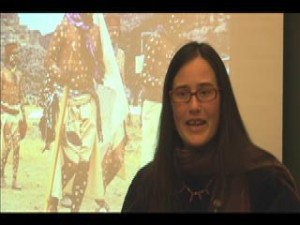I spent two months during the summer of 2005 in Kitkatla, conducting interviews on diet change and diabetes, and also on climate change. I was very fortunate to be able to conduct fieldwork under the auspices of Forests and Oceans for the Future, an opportunity not often afforded Masters students. This is a beautiful time of year to be on the North Coast, and I was blessed with many sunny days. I was also blessed to be working with Sam Lewis of Kitkatla; he helped me set up and conduct interviews and did all the translation from Smalgyax into English for the interviews we conducted together. Sam Lewis and Ernie Bolton were also invaluable in helping me interpret our results, and letting me know when I had put my foot in my mouth! Thanks are also due to their families and all the people of Kitkatla for their unwavering generosity and good humour at my curiosity.
-
Search It!
-
Recent Entries
- Dm luyeltga’nu – dinner celebrating 25 years of community reseaerch
- Publications from Twenty-five Years of Community Engagement
- Presentation to: SPECIAL COMMITTEE ON SUSTAINABLE AQUACULTURE FRIDAY, NOVEMBER 24, 2006
- Mapping Citeyats
- Driving the Ottawa Occupiers: Settler Appropriations and White Nativism.
- Review of ‘Shaping the Future on Haida Gwaii: Life beyond Settler Colonialism,’ by Joseph Weiss.
- May 21, 2021 Presentation
- Capitalist expansion into laxyuup Gitxaała
- A ‘disparaging’ assumption: reflection on crown experts
- Partnerships in Research
-
Links

